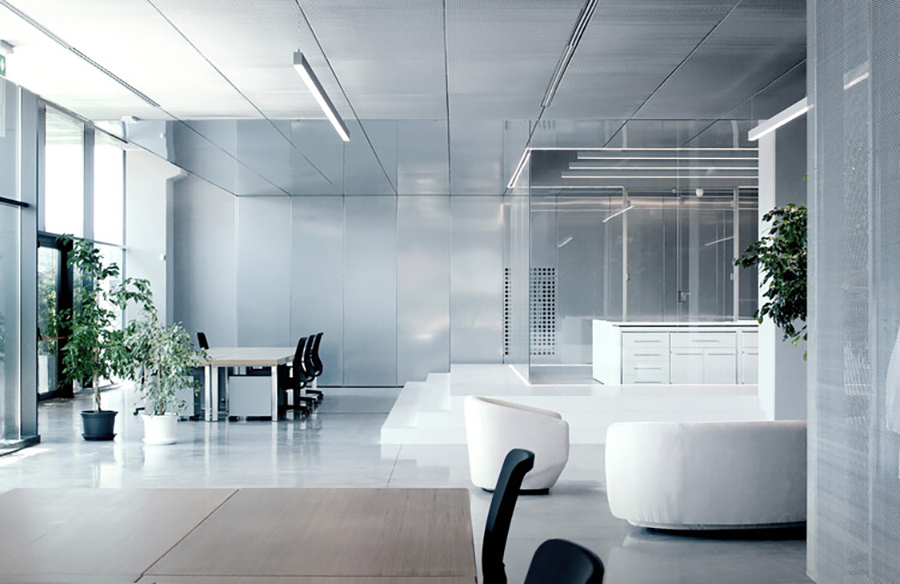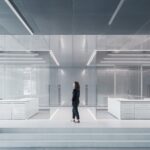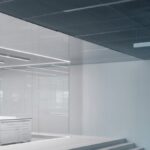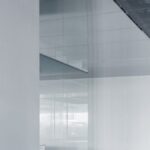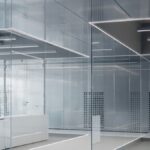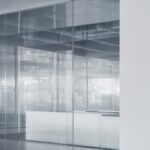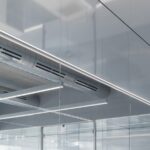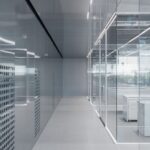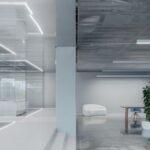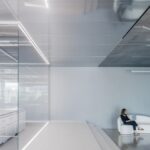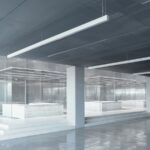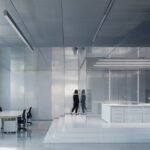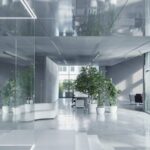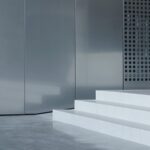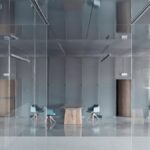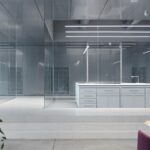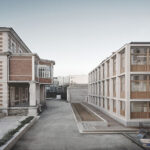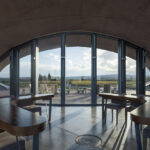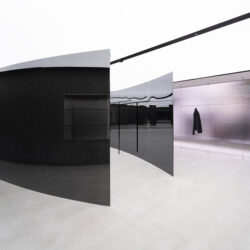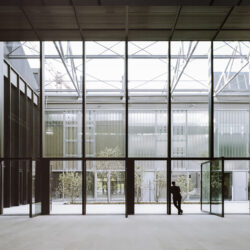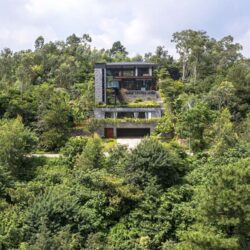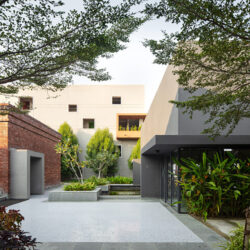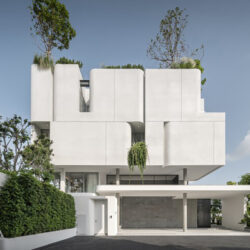Andrea Tabocchini Architecture undertook the architectural project for the new laboratories of Diatech Pharmacogenetics, an Italian company specializing in pharmacogenetics tests for cancer precision medicine, with a dual aim: to create a stimulating and experimental workspace while reinforcing the company’s identity and values.
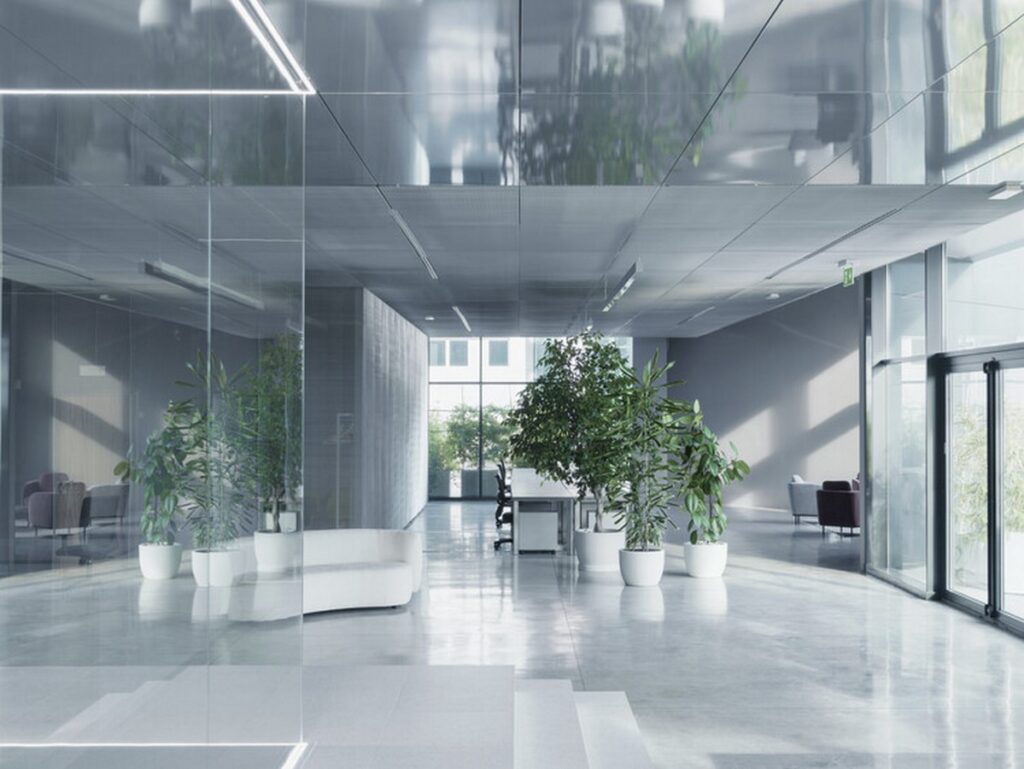
Project Overview
The project, executed within a 1200 sqm existing space on the ground floor of an industrial building located in a productive area of IESI, Italy, retained the building’s original features, including prefabricated floors, concrete columns, and a glazed facade. It was organized into two main areas: a functional warehouse in the north and a flexible research space in the south.
Design Highlights
The focal point of the project is the new glazed laboratories, comprising three crystal volumes elevated on a solid podium both physically and symbolically. This elevation transforms the laboratories into the new heart of the environment, visible and accessible. A reflective aluminum surface serves as a backdrop, illuminating the space and creating an elegant and discreet ambiance.
Flexible Working Environment
Adjacent to the laboratories, an L-shaped space is furnished with vibrant furniture, fostering a flexible and informal working environment conducive to creativity, knowledge sharing, and interaction. The cladding materials transition seamlessly, with reflective aluminum panels giving way to expanded metal sheets, blending the formal laboratory space with its informal counterpart.
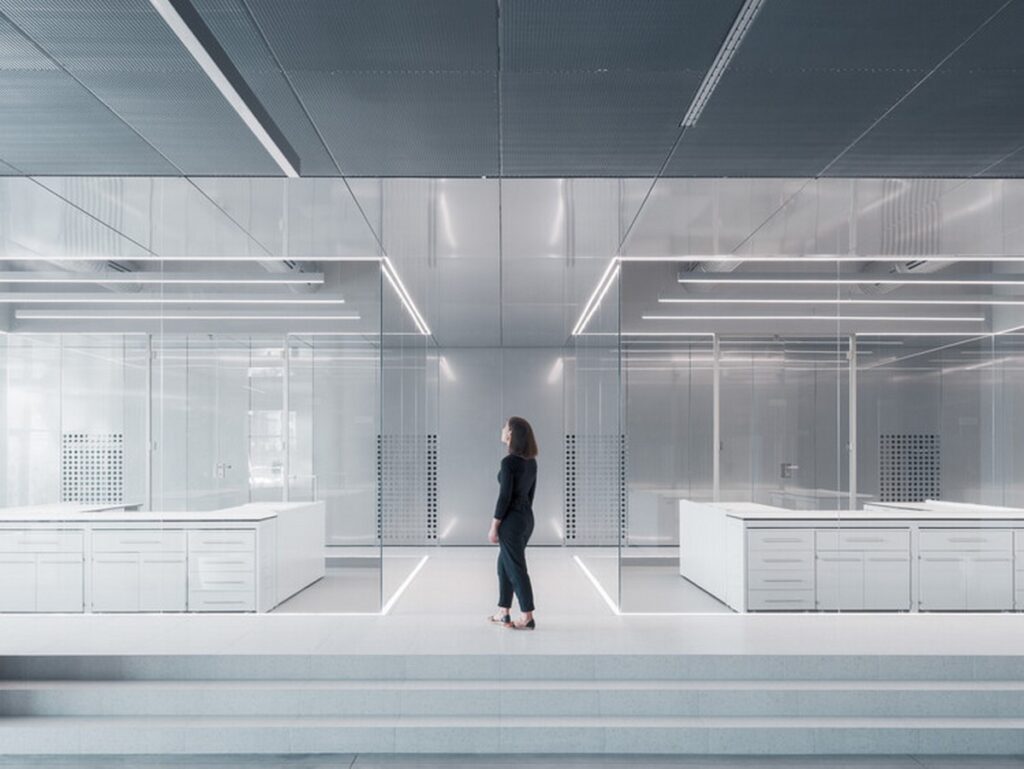
Modular Design and Precision
Elements within the space adhere to a modular grid, conveying order and precision. Lighting fixtures follow the same grid, ensuring consistency throughout the environment. This meticulous attention to detail contributes to the functionality and aesthetic coherence of the laboratory.
Result
The result is an innovative workplace that seamlessly blends poetry with technology, atmospheric ambiance with luminosity, refinement with industrial aesthetics, and functionality with representation. It stands as a testament to the adaptability and dynamism of contemporary laboratory design.


